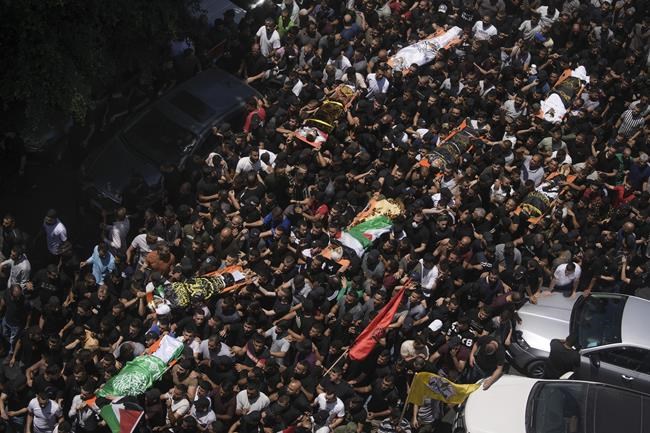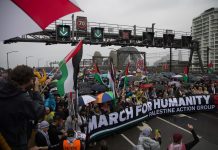
Jenin Refugee Camp, West Bank (AP) – Israel has completed the withdrawal of troops from the Jenin refugee camp, ending a two-day intensive military operation in the West Bank. Twelve Palestinians and one Israeli soldier were killed in the operation. Although the withdrawal will temporarily save the population, Israeli officials have warned that similar operations could be carried out in the future. The raid, one of the largest in the occupied territories in nearly two decades, devastated the camp and raised concerns about Israeli tactics and the chain of violence in the region.
As Israeli forces withdrew from the Jenin refugee camp, residents left their homes to witness the destruction. Piles of rubble, wrecked cars and burnt buildings lined the alleys, and shopkeepers and bulldozers began the arduous task of clearing the rubble. Thousands of people who fled the fighting have returned home, leaving their homes in ruins.
Statements from local residents underscore the bleak picture of the consequences. Resident Kefa Dhabaya, 33, expressed regret over the widespread destruction.
“Roads were destroyed, many homes were damaged, and glass was falling out of windows everywhere.” Although his home was safe, basic services such as water, electricity and internet were not available.
The Israeli military claimed that the operation, which included airstrikes and ground forces, caused heavy casualties to militants. However, given the ongoing fighting in the West Bank, the long-term consequences remain uncertain. Israeli Prime Minister Benjamin Netanyahu stressed during a visit to a military camp near Jenin that similar operations would be carried out if necessary. He vowed to “eliminate and combat terrorism wherever we see it.”
The recent raid on Jenin marks the so-called Battle of Jenin, the 2002 Israeli invasion that lasted eight days. The purpose of both operations was to suppress militant groups within the camp and prevent attacks on Israelis. Critics argue, however, that the effects of these raids were short-lived, with new gunmen quickly replacing the killed gunmen. Response from Palestinians and critics:
The Jenin raid sparked Palestinian anger and protests. Amateur videos posted on social media showed locals throwing stones at Palestinian Authority police headquarters after Israeli forces withdrew. Many Palestinians see the militants’ actions as a result of the continued occupation and lack of a political solution with Israel. They also point to increased settlement building and extremist settler violence in the West Bank.
Palestinian President Mahmoud Abbas, who governs part of the West Bank, has condemned violence against Israelis but has struggled to maintain control of militant strongholds. Thousands of mourners gathered at a mass funeral for the Palestinians killed in the attack, some expressing support for local militants and booing Palestinian Authority officials.
Humanitarian organizations have expressed concern about the worsening situation and the impact on civilians. MSF accused the Israeli army of teargassing the hospital and forcing emergency patients to be treated in the main hall. The UN Human Rights Envoy underscored the scale of the operation and expressed concern about possible violations of international human rights norms, including the right to life.
The withdrawal of Israeli forces from the Jenin refugee camp marks the end of a violent military operation that has left a trail of destruction. The crackdown was aimed at militants, but its long-term effect in preventing future attacks remains uncertain. The heavy engagement has reignited debate over Israeli tactics and the chain of violence in the region.
The United Nations’ human rights chief has expressed serious concerns about the scale of the operation, stating that it raises issues regarding international human rights norms and the right to life.
The conflict between Israel and the Palestinians continues to be a deeply entrenched and complex issue, with no easy resolution in sight. The aspirations for an independent Palestinian state and the security concerns of Israel remain at the heart of the ongoing conflict in the region.





